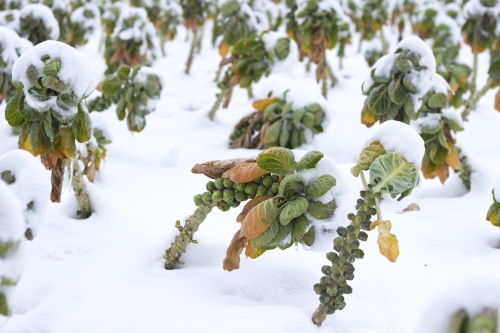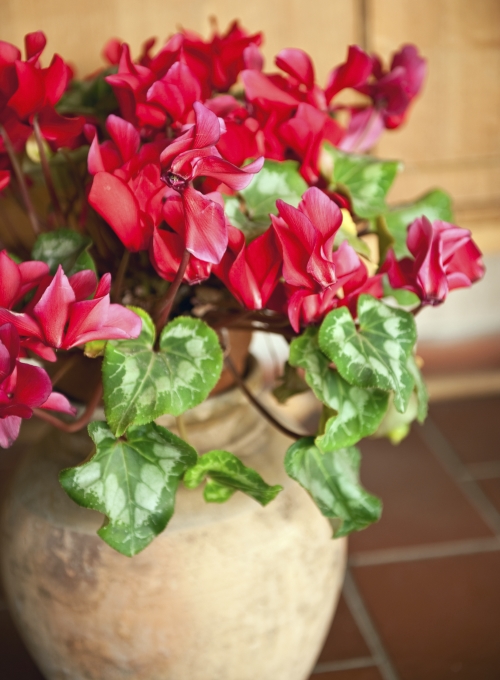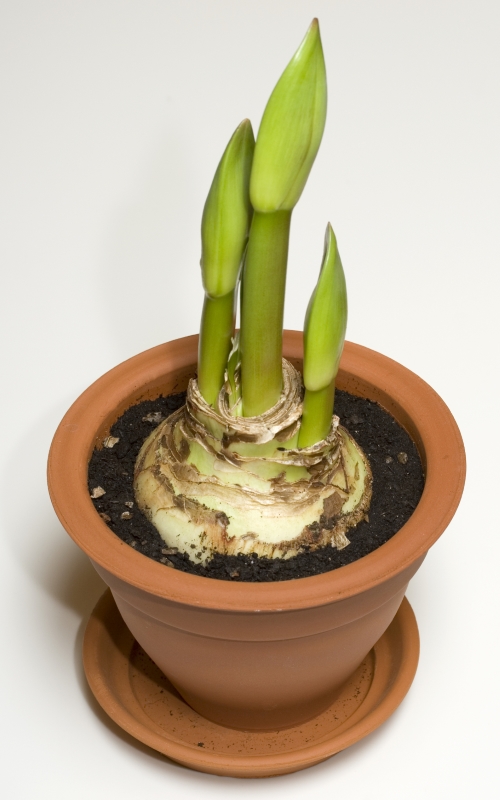Our gardener in residence, Jack Shilley takes us through his top tips on gardening during the winter months and advises how to keep your indoor plants thriving.

This time of year is arguably one of the most popular times to purchase indoor plants, so during the winter months, garden centres will have a whole array of different plants in just about any colour imaginable which can bring a refreshing splash of colour in the dark, winter nights.
Whether it's a treat for yourself at home or a beautiful gift for a friend, you'll want to keep your new houseplant looking the best that it can for the weeks and months after purchase.
Here are our choices for colourful indoor plants this winter and some top tips on how to care for them:
Orchids
Orchids are a very common houseplant. Phalaenopsis, dendrobiums and more can be found at most garden centres and even in supermarkets. The common misconception with these plants is that they are incredibly difficult to take care of. In fact, they are quite simple.
As general rule (each orchid will be different), place your orchid somewhere that is well-lit or partially shady. A place that is not in direct sunlight, ideally warm, and away from draughts at a consistent temperature is perfect. Water your orchids infrequently and ensure that your plant never sits in water. Only repot your orchid if truly necessary as this could impact its flowers.
Cyclamen
Cyclamen provide an amazing amount of colour throughout the dreary winter days if kept in a cooler place in the home. Make sure your cyclamen is in a well-lit place out of direct sunlight. Don't allow your plant to dry out: keep the compost moist at all times, but ensure that it doesn't sit in water.
Don't water your cyclamen from the top where possible. Remove dead or faded flowers as close to the base of the plant as possible to keep your plant looking fresh and to encourage more flowers. Make sure to keep an eye on the mature leaves at the base of the plant - if any start to turn yellow or wilt, remove them, as they could begin to rot.

Poinsettias
Poinsettias are the staple indoor Christmas plant, but can be rather fussy to keep looking good. When selecting your poinsettia, choose a fresh plant with no broken branches and little or no visible leaf damage or markings.
Do not take your poinsettia out in the cold; if you do, ensure it is in a protective sleeve and make sure the exposure is minimal. When at home, place it in a well-lit position away from direct sunlight and cold draughts. Allow the soil to dry out a little between waterings and never over-water. It is advisable to feed your poinsettia about once a week with either a general flowering houseplant food, or a specific poinsettia fertiliser to make sure it stays looking good.
Amaryllis
If you're after an almost carefree plant for the home that still has the wow factor, choose an amaryllis (Hippeastrum) bulb. These can be found pre-planted, in a kit (with everything you need), or as a waxed bulb which is sealed and requires little if any attention at all.
Place your bulb in a well-lit spot, watering occasionally if in soil, paying close attention to the size of the plant to make sure it doesn't tip over. Once the flowers have finished, and the flower stem starts to die back, cut it down to around 1 inch above the bulb, water and feed throughout the year to prepare the bulb for flowering next year.

Other
Foliage house plants prefer a little more light in the winter than in summer, so move any you have or position your new plant in a well-lit position where it will get plenty of light. Water your palms occasionally, allowing the soil to dry out slightly between waterings and feed occasionally with a special palm fertiliser.
Remember: it is always worth keeping the plant labels and any documentation given with your plant purchase. Alternatively, ask at your local garden centre or plant store if you are unsure about anything as an expert will always be around to help.
For more information on Origin's bespoke bi-folding doors, contact your local installer today.















%202.jpg?v=639070356382123352)

